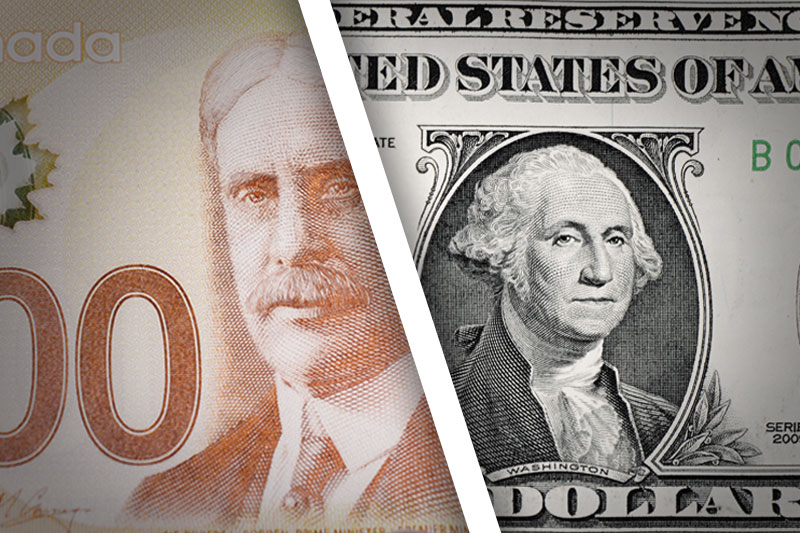Investing.com - The U.S. dollar was trading near more than five-year highs against its Canadian counterpart on Wednesday, supported by the release of upbeat U.S. private sector jobs and trade balance data.
USD/CAD hit 1.1868 during early U.S. trade, the pair's highest since May 2009; the pair subsequently consolidated at 1.1848, edging up 0.09%.
The pair was likely to find support at 1.1728, Tuesday's low and resistance at 1.1951.
In a report, payroll processing firm ADP said non-farm private employment rose by 241,000 last month, above expectations for an increase of 226,000. The economy created 227,000 jobs in November, whose figure was upwardly revised from a previously reported 208,000.
Data also showed that the U.S. trade deficit narrowed to $39.00 billion in November from $42.25 billion in October, whose figure was revised from a previously estimated deficit of $43.40 billion.
Analysts had expected the trade deficit to narrow to $42.00 billion in November.
The strong data added to expectations that the Federal Reserve will raise interest rates in the coming year.
In Canada, official data showed that the trade deficit widened to C$0.64 billion in November from C$0.33 billion in October, whose figure was revised from a previously estimated deficit of C$0.10 billion.
Analysts had expected Canada's trade deficit to hit C$0.20 billion in November.
The loonie was higher against the euro, with EUR/CAD sliding 0.45% to 1.4012.
The euro was hit after data showed that the annual rate of euro zone inflation fell by 0.2% in December, down from 0.3% in November. Economists had expected an annual decline of 0.1%. It was the first fall in the annual rate of inflation since October 2009.
Core inflation, which strips out volatile measures such as food and energy costs, rose 0.8% on a year-over-year basis, but was still well below the European Central Bank's target of close to, but just under 2%.
The data added to expectations that the ECB could implement quantitative easing as soon as its next meeting on January 22.
A separate report showed that the euro zone’s unemployment rate was unchanged at 11.5% in November for the sixth straight month, but the number of people without jobs rose for the third consecutive month, by 34,000 to 18.394 million.
